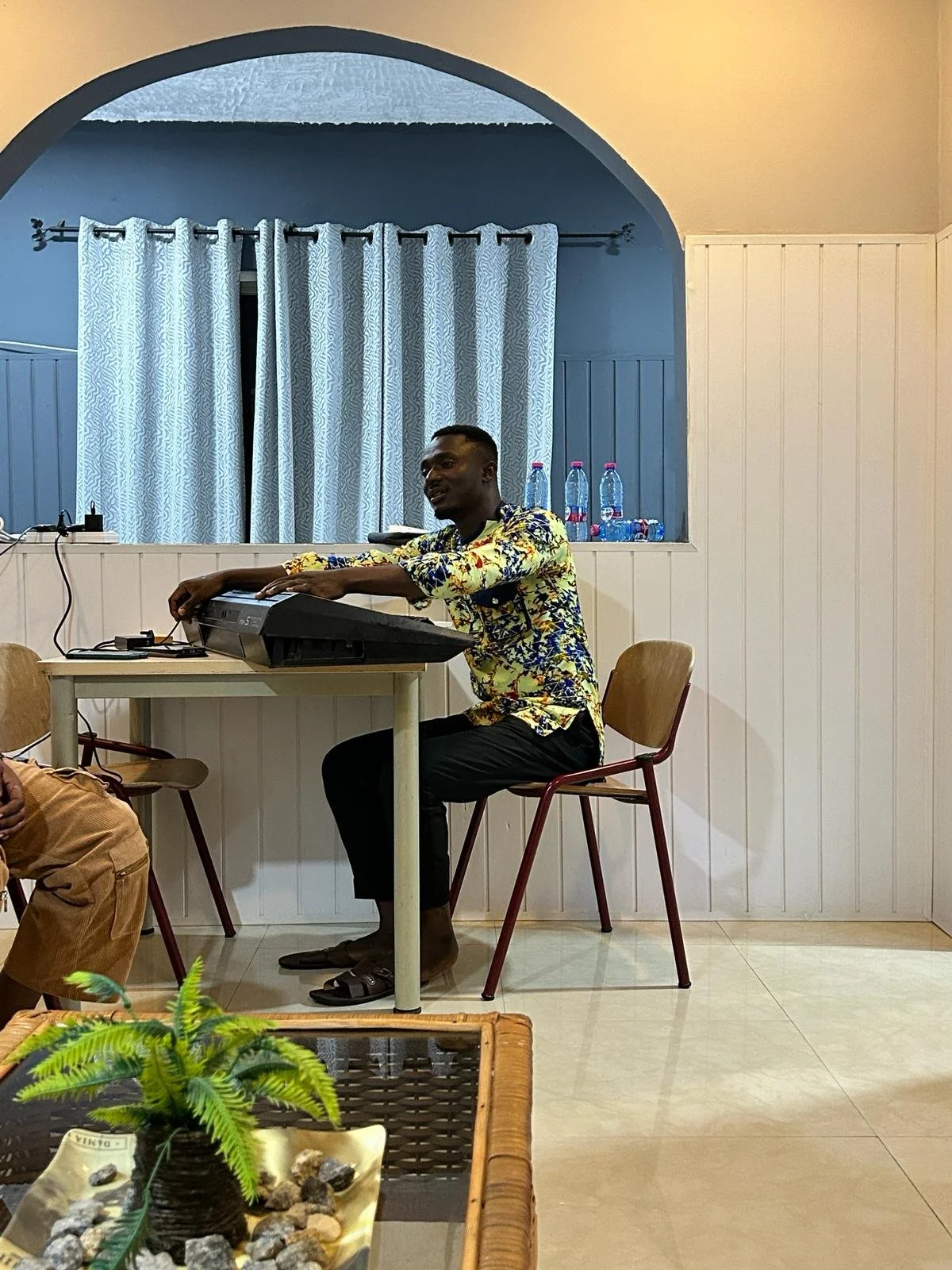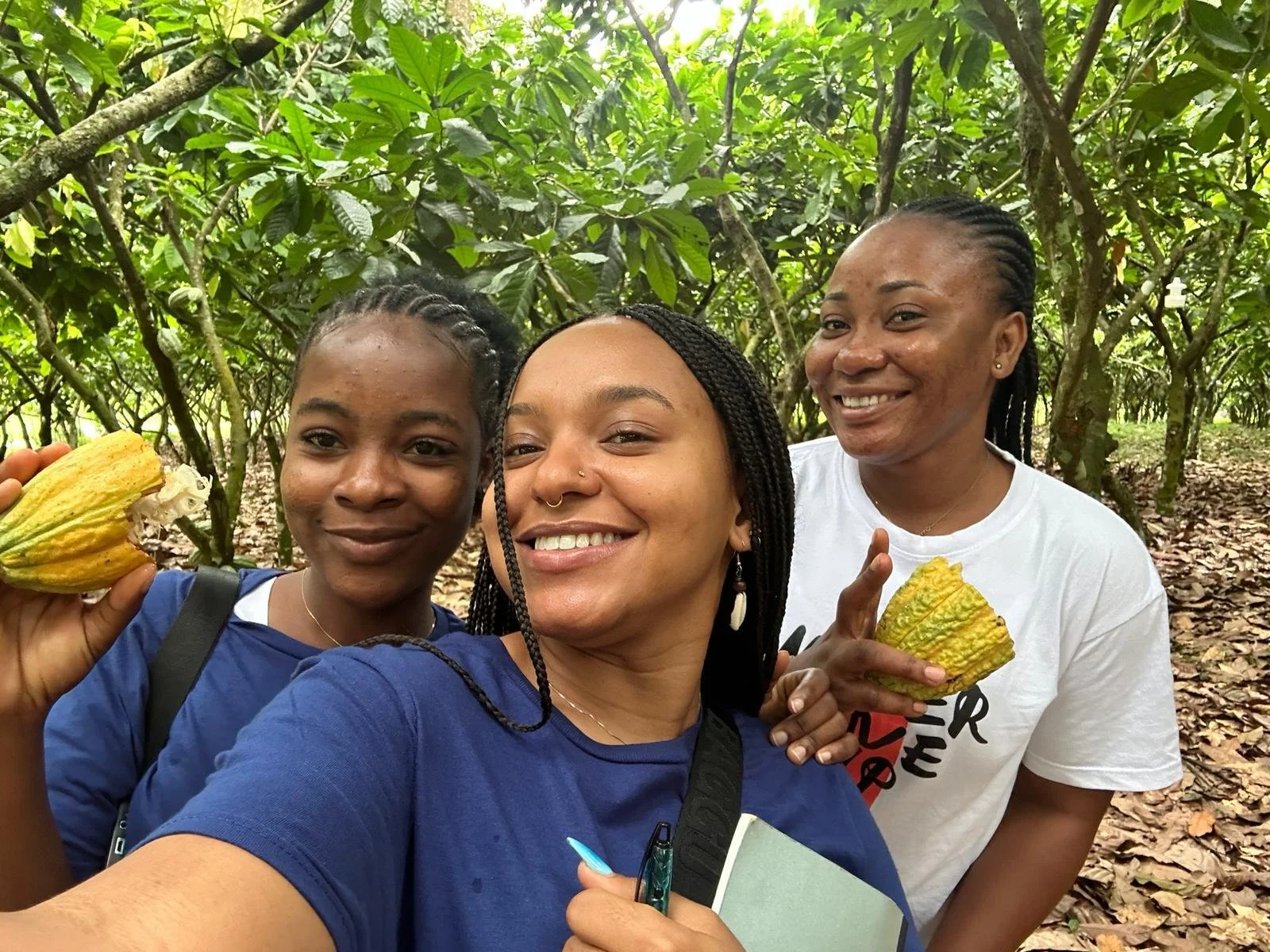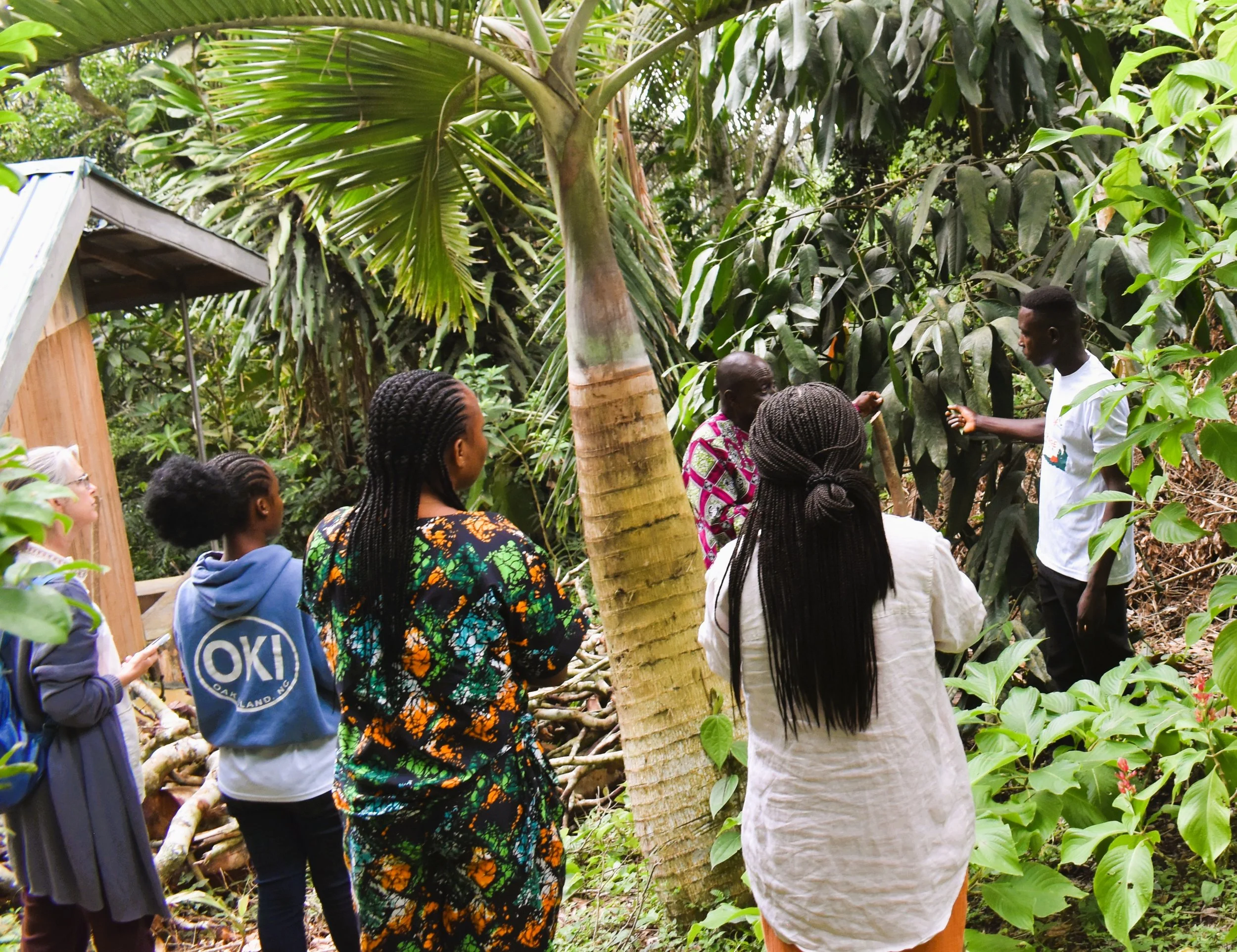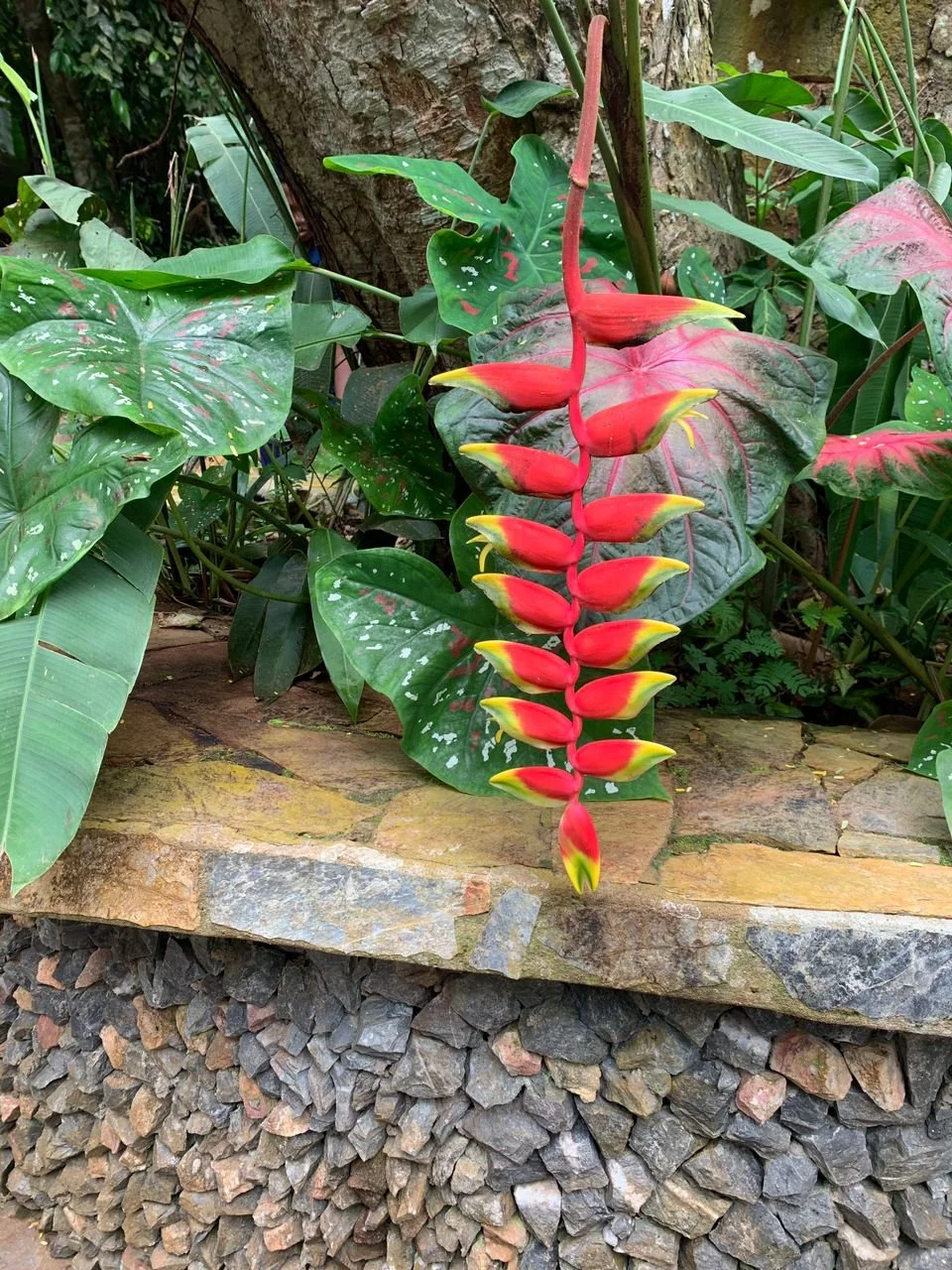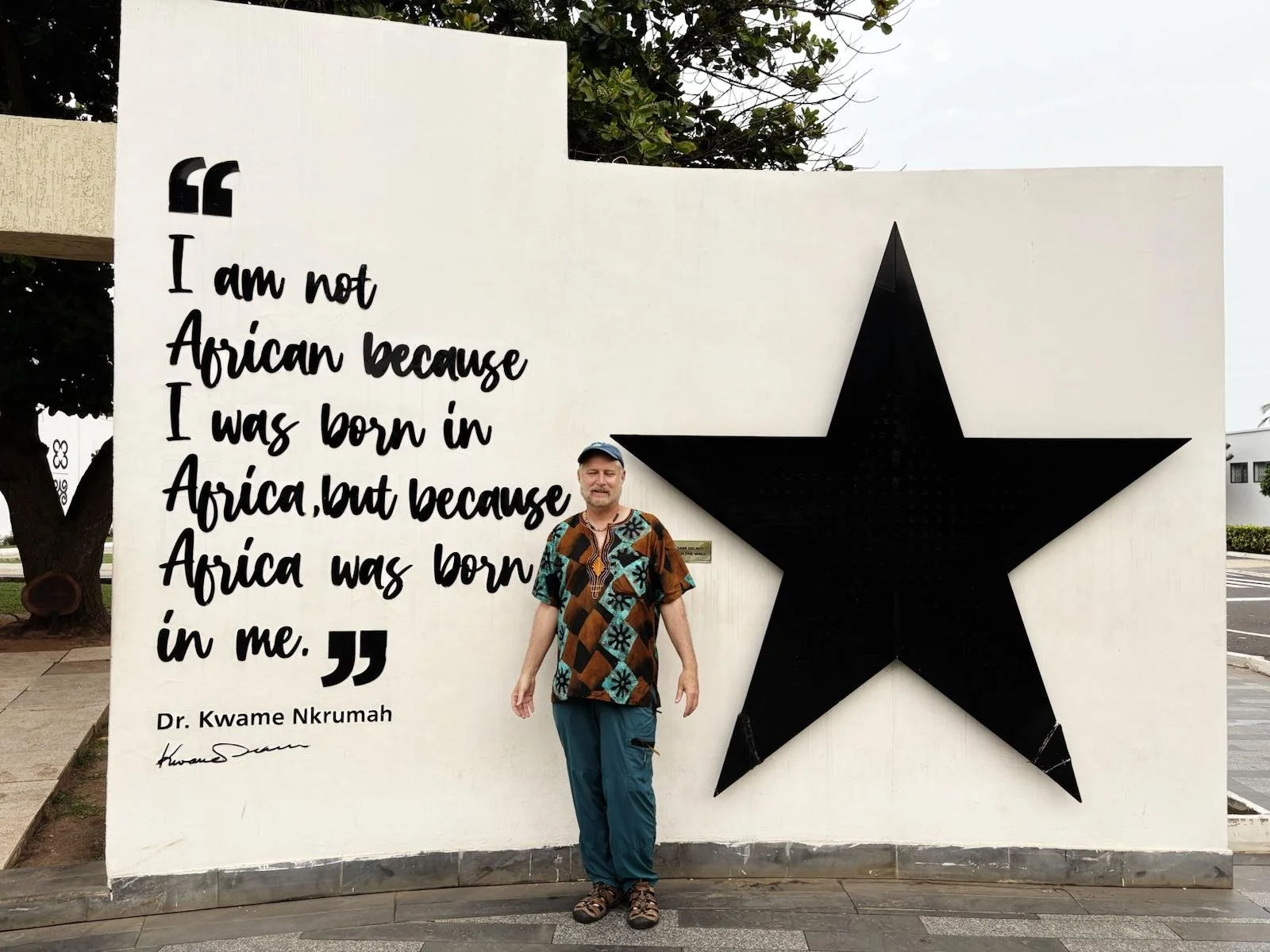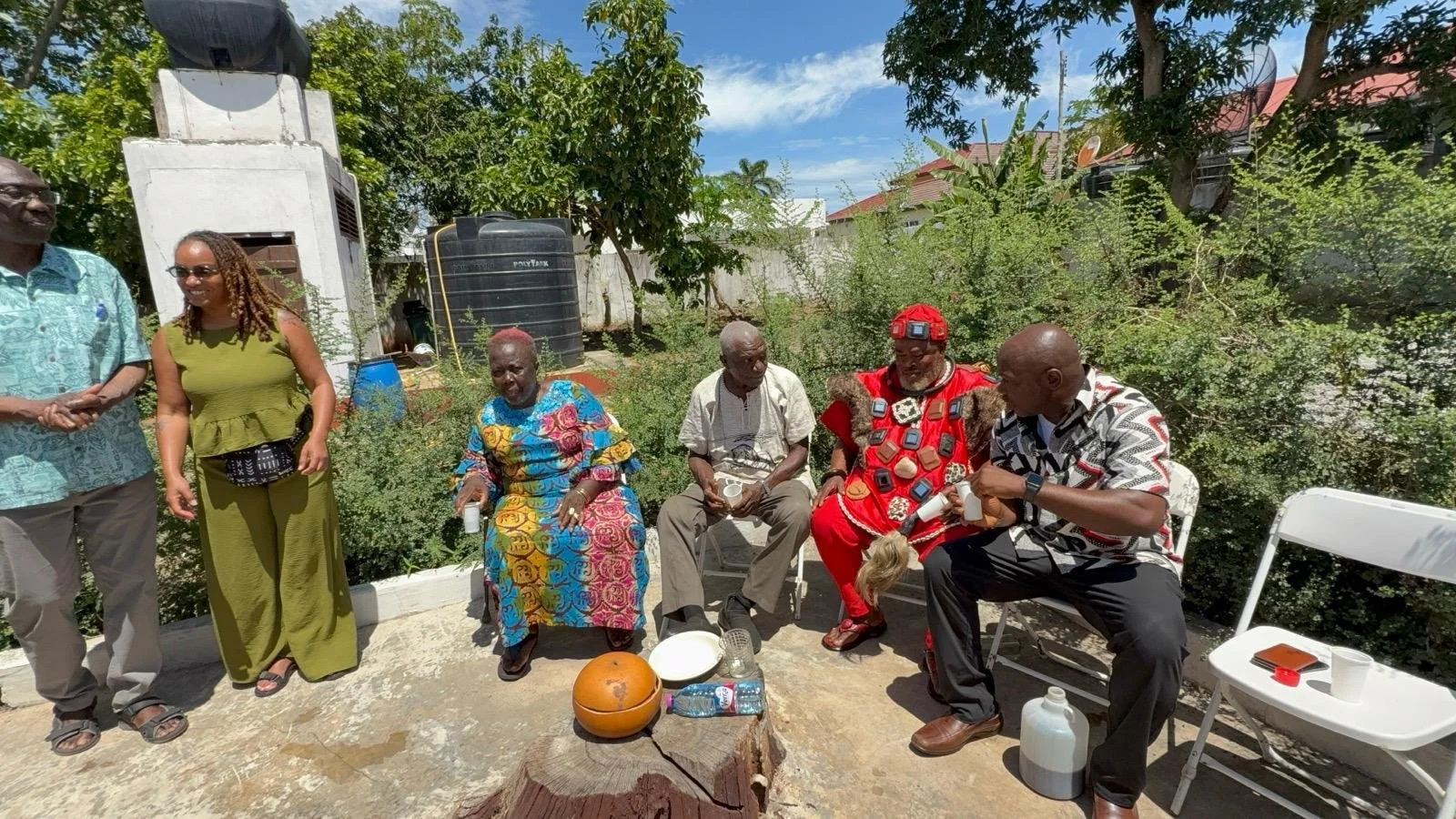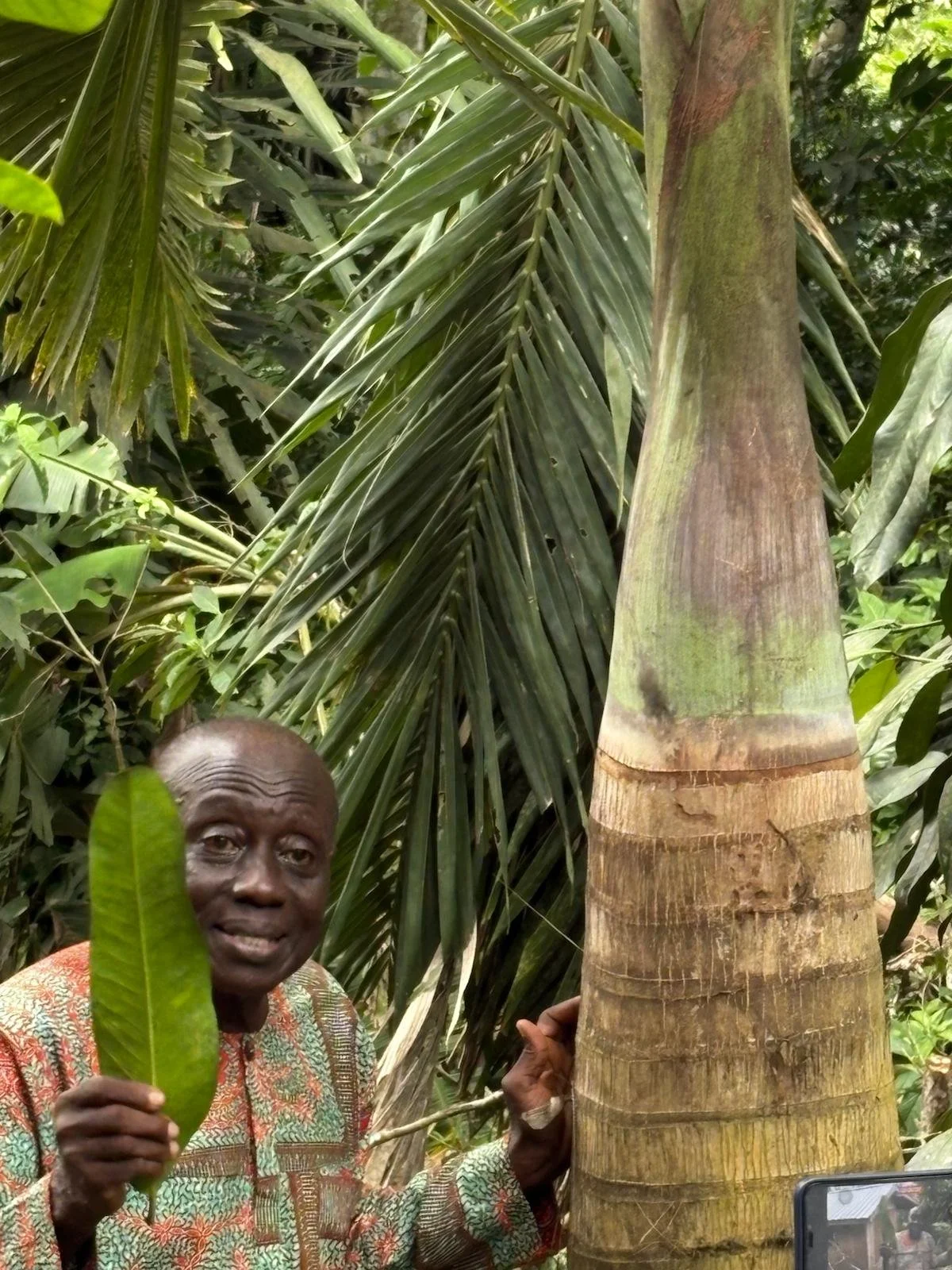Earlier today, I thought I knew exactly what my blog post would be about - until we visited Donkor Nsuo. It was an unexplainable experience. I still can’t fully wrap my mind around everything we endured today, everything our ancestors endured. We walked barefoot, feeling the sandy soil squelch beneath our feet. I caught myself checking my own privilege as I worried about bugs, while walking the same path our ancestors once did.
As we made our way to the river, we held onto leaves that symbolized what we wanted to release. I watched as our leaves swirled together before washing away. Some floated back to their owner, like they weren’t ready to leave. I think Olivia’s and mine intertwined, moving forward together. How could a place so peaceful hold so much pain? I thought to myself. The water flowed gently, nature surrounded us, the sun peaked through the clouds, glimmering across our skin and the river’s surface. I felt the emotions in the water, some parts cold and bracing, others warm like a soft touch. A feeling I will carry with me for a long time.
SANKOFA: Take from the past and bring it forward. As educators, we are responsible for passing this on to our students; both the pain and the resilience.
With that said, I still want to go back to what I originally wanted my blog to highlight - JOY.
A feeling I keep returning to on this trip. It’s a feeling I try to instill in the children I work with, even when we’re learning about hard history.
Some friends back home asked me, “Do you feel homesick?” The question stuck with me. Homesick? How could I be? Even when I was physically feeling sick here, I didn’t have that feeling. The members of the Witness Tree Institute, Cohort 2, have been extremely supportive. We heal and uplift each other with words, our thoughts, with songs, and more. A few days ago, we were strangers. Now, we’re building a familial connection. We laugh to tears, sing songs that make you feel full. In a space so welcoming, homesickness just doesn’t seem possible. This experience has been healing.
I’ve thought about home: my students, my family, but more than that, I’ve thought about how much I’ll miss this group when it’s time to leave. Being here has pushed me far beyond my comfort zone. I’ve always considered myself someone who warms up slowly in groups: quiet, shy, definitely not the one to speak or sing in front of a crowd. But I’ve done those things here. I’ve allowed myself to be vulnerable, invite the stranger and learn in public.
Last night, my nerves were high when Uncle T said the ceremony would be moved up and I’d have to sing sooner than I expected. Although I had accepted the task earlier, I did it reluctantly. Growing up, I was told by peers and others, “You can’t sing.” Whether or not it was true, it stuck. I avoided singing in front of others unless I could mask my voice behind louder voices.
But being here changed that.
The Ghanaian teachers: Seth, Kwasi, Fibi, Dela, Olivia, and Eric - helped me find peace in singing. They stayed up late practicing their own songs, yet still made time to support me with mine. They uplifted me and sang with me as I found my voice. The U.S. teachers—Melissa, Katherine, Idris (a.k.a. Kofi), Nancy, Kristen, Maddie, and David - held space for me, giving me warmth, encouragement, and safety. I found my voice here. A voice I didn’t know I had.
And as we’ve heard before on this journey: “You are in my songs—how can I keep from singing?”
Kiyah Chester general education teacher 4/5th grade Central Park East 1 Manhattan, NY

